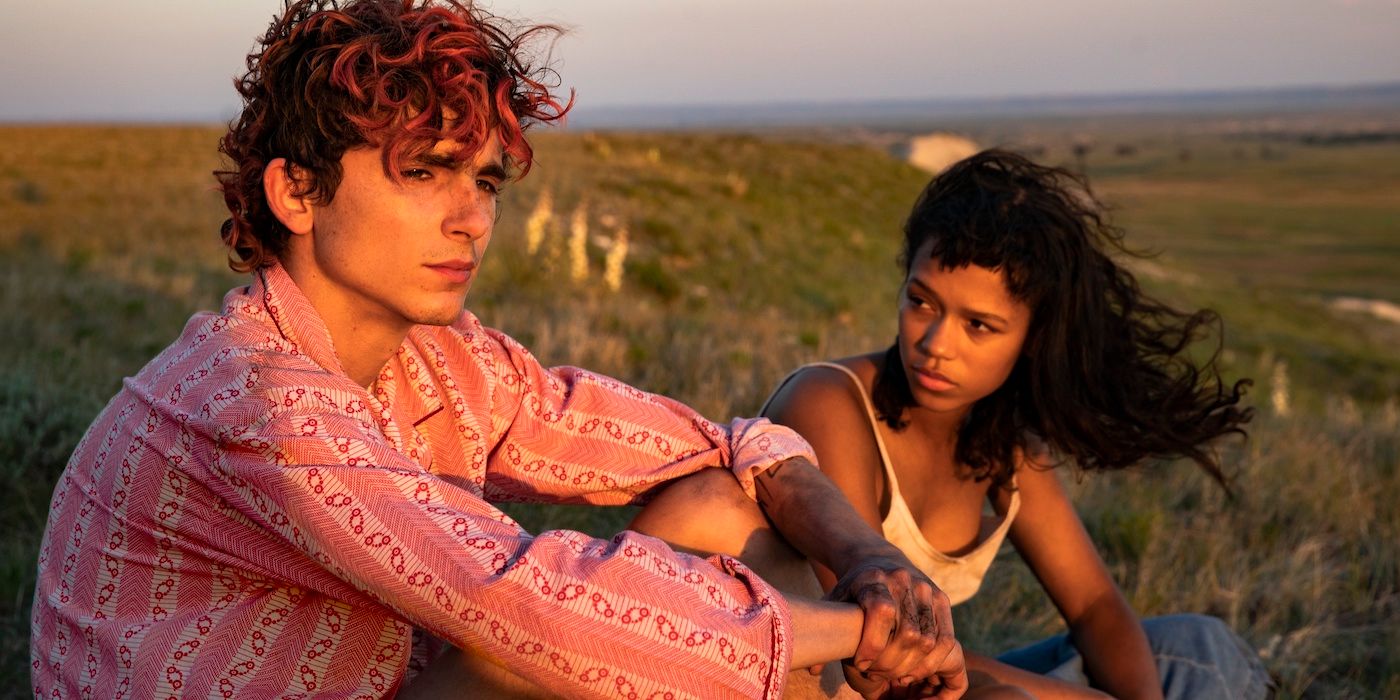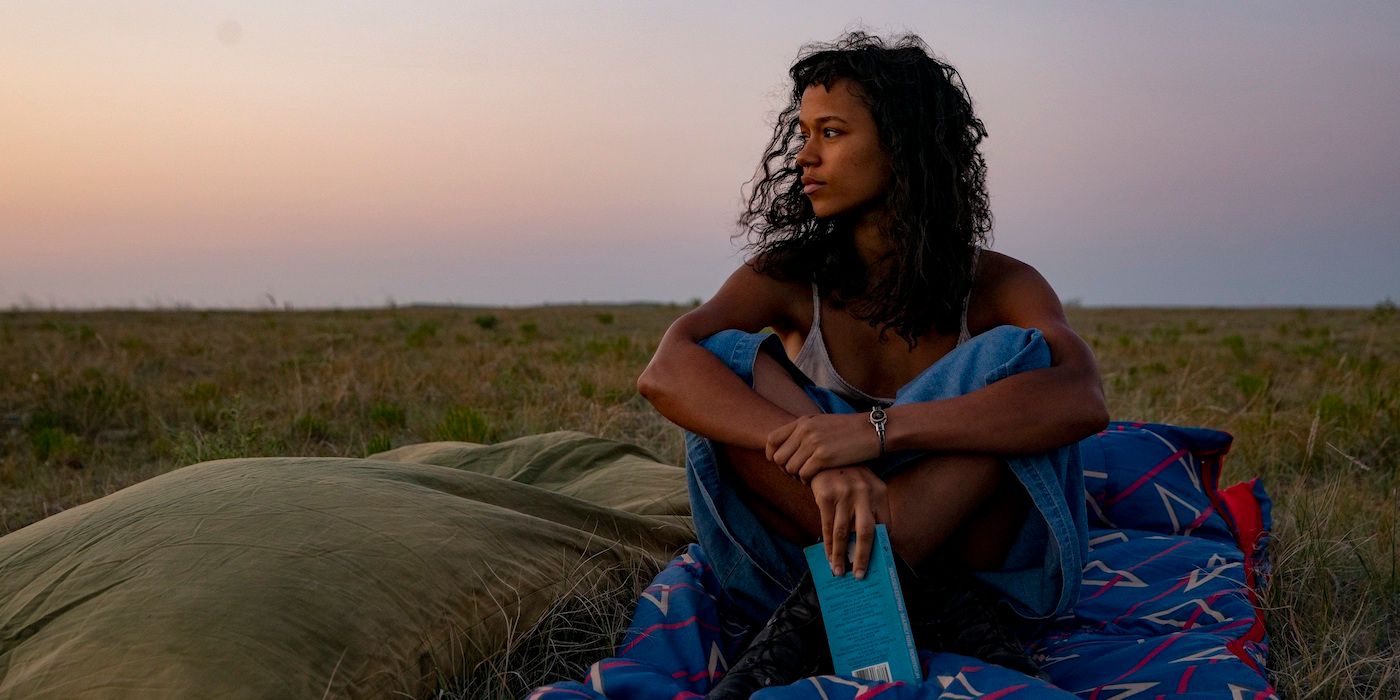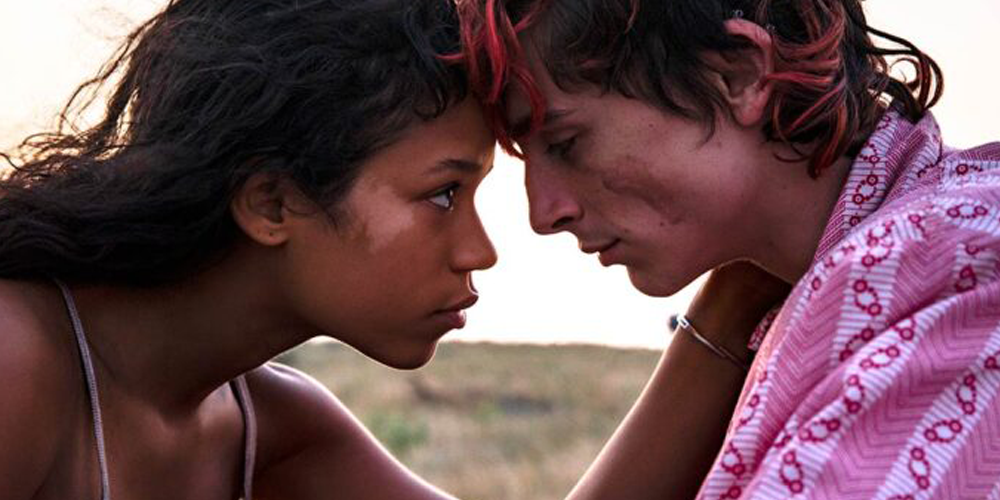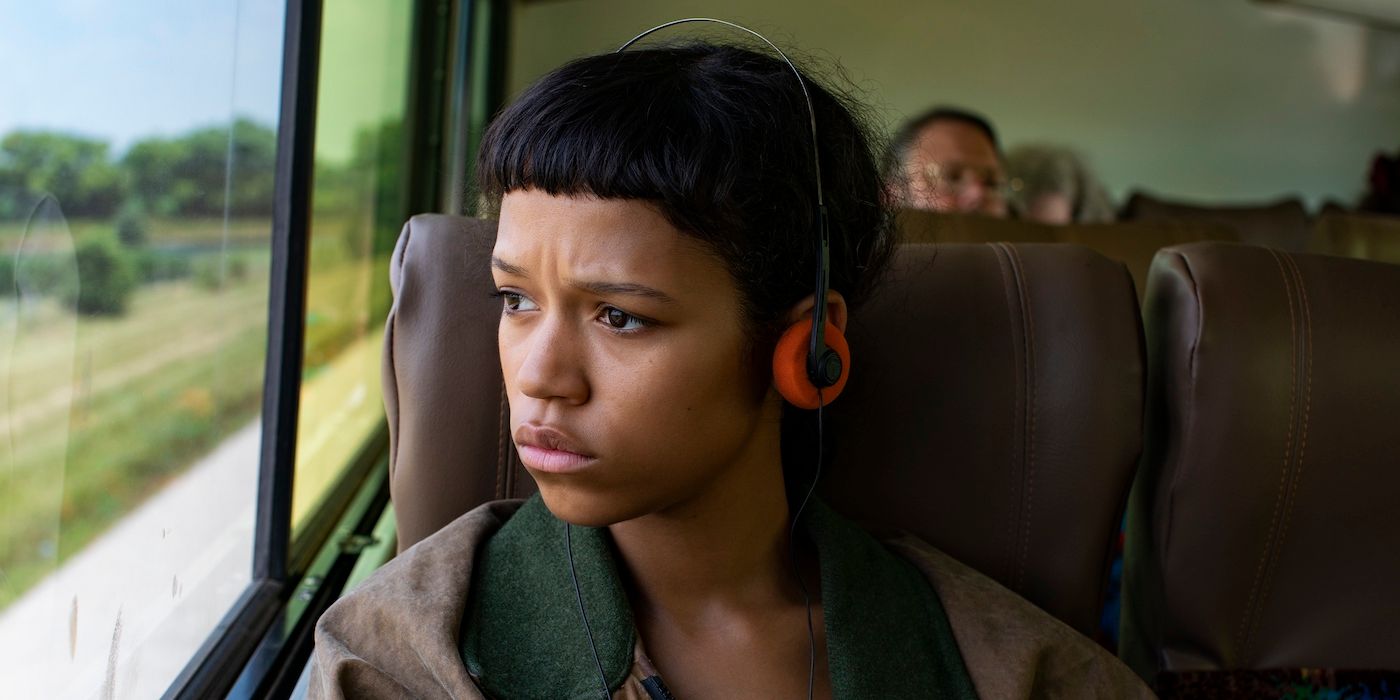Editor's Note: The following contains spoilers for Bones and All.
If you found yourself rooting for the young leads at the heart of Luca Guadagnino's romantic horror Bones and All despite their heinous deeds, you weren't alone. The film succeeds beautifully as a love story about two outcasts rejected by society who manage to find solace and acceptance in each other. Yet Bones and All wants to be about more than that. These outcasts aren't just your average teenage runaways; they're cannibals. They exist on the margins because they have a compulsion to kill and eat other humans, and they make no effort to resist that compulsion. This setup gives the film an opportunity to explore some complex and interesting moral questions, but in the end, what little exploration it engages in turns out to be merely superficial.
Early in the movie, Maren (Taylor Russell) and Lee (Timothée Chalamet) break into a slaughterhouse where Lee has worked summers to steal the petty cash. While there, Lee takes Maren to see the holding pen where cows are kept while they await death, constantly mooing in distress. As they look over the doomed animals, Maren asks Lee whether he's ever considered that each of these cows had a mom, a dad, friends. Lee concurs, adding, "A language." The obvious point here is that cattle aren't that different from humans and vice versa, and the movie seems to be introducing an interesting theme: if it is ethical to eat a cow, which has an inner life filled with the capacity for emotion and attachment to others, then why is it not ethical to eat a human? Or perhaps it's not ethical to eat animals at all? The scene leads us to believe that the film will go on to consider these questions and others like them, but instead, the story moves quickly ahead to the next adventure in the budding romance.
Unanswered Questions About the Morality of Cannibalism
This becomes a pattern: introducing interesting moral arguments that could make for compelling themes, then abandoning them immediately. We see another example in the scene at the swimming hole (which the incomparable Michael Stuhlbarg manages to steal with just a few minutes of screen time). Stuhlbarg's character Jake is a fellow eater, but his cop friend Brad (David Gordon Green) eats people for enjoyment, not out of necessity. Maren is disgusted by this revelation, but why? This reaction is particularly puzzling after her comments about the cows. The vast majority of people who eat meat (especially in wealthy countries) do so for pleasure, not because they must do it for survival. Does Maren also find this reprehensible? She doesn't seem to, at least based on the fact that she has no problem with Lee working at a slaughterhouse.
What's more, she and the other eaters also clearly enjoy eating human flesh, and they don't seem to be making any effort to stop doing it. From Maren's point of view, then, what is so problematic about Brad's choice? Again, the film has a chance here to probe deeper, to consider the differences between eating for survival and eating for pleasure and why one might be more problematic than the other, particularly when you're talking about eating meat. But instead, it drops the point and moves on.
Missed Opportunities for Moral Introspection
Perhaps the most glaring missed opportunity occurs after Maren and Lee discover that the carnival worker they killed had a wife and children. The pair had convinced themselves that targeting victims with no families was somehow less bad — ignoring the fact that just because an individual doesn't have a spouse or kids living with them, this doesn't mean that they have no one who cares about them (and even if they don't, it doesn't mean their life is valueless). Maren is horrified when they arrive at the man's home to see a worried wife holding a baby and a phone, pacing in front of a brightly lit window. Yet she's also distressed to find that she feels no remorse. She wants to feel something, she says, but she doesn't.
At this point in the film, the viewer might expect Maren to engage in some introspection. Why does she feel no remorse for killing people? Does this make her a monster? If she wants to feel remorse, then she hasn't completely lost her humanity. Should she make a serious effort to resist her compulsion to eat? But Maren and the film don't pause to consider these ideas.
Interestingly, of all the eaters we meet in Bones and All, the one depicted as the most monstrous is the only one who has overcome her compulsion to eat, though at great cost: Maren's mother, Janelle (Chloë Sevigny). After committing herself to a facility where she wouldn't be able to harm others anymore, Janelle ate her own hands before she was finally medicated enough to no longer be a threat. She has made the ultimate sacrifice, and the movie might have benefited from a deeper look at her story and her decision to remove herself from society and give up her ability to kill. The contrast between her choice and Maren's choice to continue eating could have presented an interesting dilemma to delve into: if this is the consequence of resisting your compulsion to eat, then is that a choice that anyone can be expected to make? If it's true that Maren's compulsion will only grow stronger as she ages, can she possibly go on living as she is? How many lives is one life worth?
Instead, the film presents Janelle as a grotesque yet pitiable monster who tries to kill her own daughter with her teeth. And while this could be interpreted as an act of heroism since she knows her daughter is a murderer, the film doesn't frame it that way. It turns the attack into a jump scare and steers all of our sympathies to Maren.
The act of consumption itself carries a lot of complicated moral questions with it, particularly the act of consuming other beings. When you add in the additional complicating factors of history, tradition, social norms, and religious prescriptions, it's no wonder that so many of us have such a convoluted relationship with food. A movie about beautiful young cannibals who are driven to hunt like predators, but who have the rational capacity to contemplate the ethics of their actions, could be a brilliant medium to (pardon the pun) flesh out these themes.
But Bones only scratches the surface of these questions, hinting at them but never exploring them fully. And this raises another question: why do the characters engage in such depraved acts if the film isn't going to explore what it means? There are lots of reasons Maren and Lee could be outcasts, rejected by their families and society — the trope has been done dozens of times in other movies. If the film doesn't examine the ideas raised by their actions with any real depth, then ultimately, the cannibalism seems beside the point.




